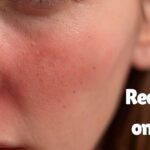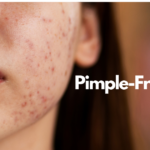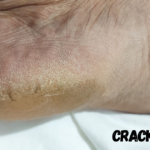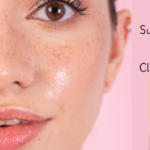Best Skin Care Routine for Eczema Prone Skin can be challenging to manage, requiring a careful balance of hydration, gentle cleansing, and protection against environmental triggers. The best skin care routine for eczema-prone skin not only soothes irritation but also strengthens the skin barrier to prevent future flare-ups. If you’re looking for an effective routine to keep your skin calm and comfortable, read on.
Table of Contents
1. Gentle Cleansing
The first step in any skincare routine is cleansing, but for those with eczema-prone skin, it’s essential to choose a gentle, non-foaming cleanser. Look for products that are free from harsh detergents, fragrances, and alcohol, as these can strip your skin of its natural oils and exacerbate eczema. Instead, opt for a cream or oil-based cleanser that helps to maintain your skin’s moisture balance. Cleansing should be done twice a day, but if your skin feels particularly dry or irritated, consider reducing it to once daily. Best skin care routine for eczema Prone skin
2. Hydration is Key
Best skin care routine for eczema Prone skin is Keeping your skin well-hydrated is crucial when dealing with eczema. After cleansing, apply a hydrating toner that is alcohol-free to help restore your skin’s natural pH. Follow up with a moisturizer that contains ingredients like ceramides, glycerin, and hyaluronic acid. These ingredients help to lock in moisture and strengthen the skin barrier, preventing dryness and irritation. best skin care routine for eczema-prone skin For best results, apply your moisturizer while your skin is still slightly damp to seal in hydration.
3. Incorporate a Barrier Repair Cream
In addition to your regular moisturizer, consider adding a barrier repair cream to your routine. These creams are specifically designed to rebuild and protect the skin barrier, which is often compromised in eczema-prone skin. Look for products that contain ceramides, niacinamide, and fatty acids. Apply the barrier repair cream to any areas that are particularly dry or prone to eczema flare-ups. best skin care routine for eczema-prone skin
4. Choose a Gentle Exfoliator
Exfoliation is important for removing dead skin cells and promoting cell turnover, but it must be done carefully if you have eczema-prone skin. The best exfoliator for eczema-prone skin is one that is gentle and non-abrasive. Consider using a mild enzyme exfoliator or a lactic acid-based product, which helps to exfoliate without causing irritation. Limit exfoliation to once a week and always follow up with a moisturizer to soothe the skin.
5. Sun Protection is a Must
Sun protection is essential for everyone, but it’s particularly important for those with eczema-prone skin. The best sunscreen for eczema-prone skin is a mineral-based sunscreen that contains zinc oxide or titanium dioxide. Mineral-based sunscreens with zinc oxide or titanium dioxide are typically gentler on sensitive skin and are less likely to cause irritation. Opt for a broad-spectrum SPF of 30 or higher, and make it a part of your daily routine, regardless of the weather. If you’re outdoors for extended periods, remember to reapply your sunscreen every two hours to maintain protection.
6. Selecting the Right Makeup
Choosing makeup for eczema-prone skin can be tricky, as many products contain ingredients that can trigger flare-ups. The best makeup for eczema-prone skin is hypoallergenic, fragrance-free, and non-comedogenic. Look for foundations and concealers with soothing ingredients like aloe vera, chamomile, and hyaluronic acid. Mineral-based makeup is also a great option, as it tends to be less irritating and provides natural sun protection. Always remove makeup at the end of the day with a gentle cleanser to avoid clogging your pores.
7. Avoid Common Triggers
When managing eczema-prone skin, it’s crucial to be mindful of potential triggers. Common irritants include harsh soaps, synthetic fragrances, and certain fabrics like wool. Opt for clothing made of soft, breathable materials like cotton, and use laundry detergents that are free from dyes and fragrances. Additionally, stress can exacerbate eczema, so incorporating stress-reducing activities like yoga, meditation, or regular exercise can be beneficial.
Natural remedies for skin tightening at home
8. Patch Test New Products
Before introducing any new skincare product into your routine, it’s important to do a patch test. Apply a small amount of the product to a discreet area of skin, such as behind your ear or on your wrist, and wait 24 hours to see if any irritation occurs. This simple step can prevent potential flare-ups and ensure that the product is safe for your sensitive skin.
9. Stay Hydrated and Maintain a Nutrient-Rich Diet
Your diet plays a crucial role in the health of your skin. Drinking ample water throughout the day is vital for maintaining hydration and keeping your skin supple. In addition to staying hydrated, focusing on a balanced diet rich in omega-3 fatty acids, antioxidants, and essential vitamins can greatly benefit eczema-prone skin. Incorporate foods like salmon, avocados, nuts, and leafy greens into your meals, as these nutrients help reduce inflammation and support overall skin health.
10. Consult a Dermatologist
If your eczema is severe or if over-the-counter products aren’t providing relief, it may be time to consult a dermatologist. A dermatologist can help you develop a personalized skincare routine and may recommend prescription treatments to help manage your symptoms. Don’t hesitate to seek professional advice if you’re struggling to control your eczema.
“Welcome to luminblooom.com!
Beauty, simplified. Remedies, reviews, and rituals for a radiant you.
Unlock your natural glow with our expert tips and tricks.









2 thoughts on “Best skin care routine for eczema Prone skin”